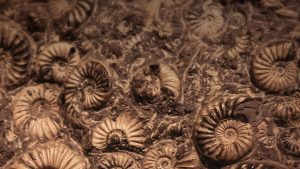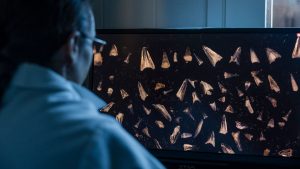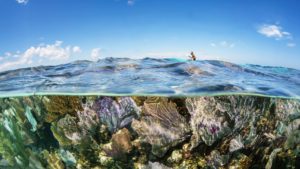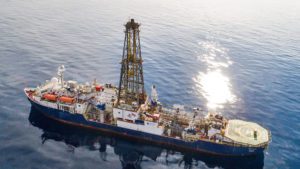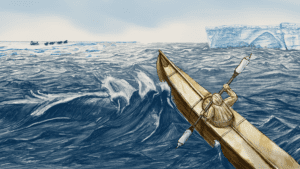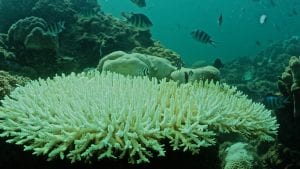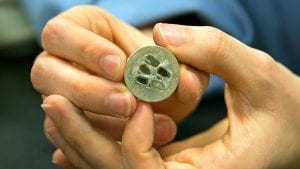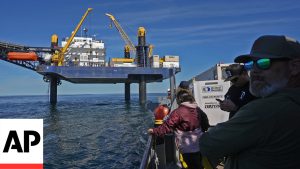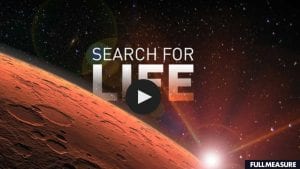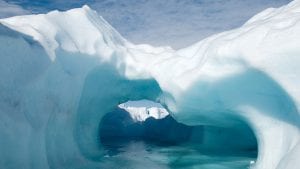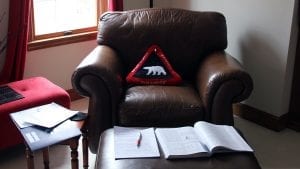Research Highlights
Oceanus Magazine
News Releases
New research highlights the devastation caused when global-scale ocean warming interacts with short-lived weather anomalies, and adds urgency to the question of how reefs will fare through the end of this century.
A new WHOI study led by WHOI suggests the mantleâÃÂÃÂthe mostly solid, rocky part of Earth’s interior that lies between its super-heated core and its outer crustal layerâÃÂÃÂmay be hotter than previously believed. The surprising finding could change how scientists think about many issues in Earth science including how ocean basins form.
Henry Dick of the Woods Hole Oceanographic Institution (WHOI) has been named a Fellow of the American Association for the Advancement of Science (AAAS). Election as an AAAS Fellow is an honor bestowed upon association members by their peers.
A new study by researchers from University of Washington (UW), Woods Hole Oceanographic Institution (WHOI), and the University of Southern California, demonstrates that chemical-laden plumes erupted from vents at one section of Mid Ocean Ridge in the SE Pacific can be traced all the way across the Pacific for more than 4000 kilometers. Further, the study shows how the iron transported by this process is ultimately brought to the surface oceans of Antarctica where it is serves as a key life-sustaining micro-nutrient supporting up to 30 percent of all the organic carbon uptake in that ocean.
In 2009, scientists from Woods Hole Oceanographic Institution embarked on a NASA-funded mission to the Mid-Cayman Rise in the Caribbean, in search of a type of deep-sea hot-spring or hydrothermal vent that they believed held clues to the search for life on other planets. They were looking for a site with a venting process that produces a lot of hydrogen because of the potential it holds for the chemical, or abiotic, creation of organic molecules like methane – possible precursors to the prebiotic compounds from which life on Earth emerged.
For more than a decade, the scientific community has postulated that in such an environment, methane and other organic compounds could be spontaneously produced by chemical reactions between hydrogen from the vent fluid and carbon dioxide (CO2). The theory made perfect sense, but showing that it happened in nature was challenging.
Now we know why: an analysis of the vent fluid chemistry proves that for some organic compounds, it doesn’t happen that way.
New research by geochemists at Woods Hole Oceanographic Institution, published June 8 in the Proceedings of the National Academy of Sciences, is the first to show that methane formation does not occur during the relatively quick fluid circulation process, despite extraordinarily high hydrogen contents in the waters. While the methane in the Von Damm vent system they studied was produced through chemical reactions (abiotically), it was produced on geologic time scales deep beneath the seafloor and independent of the venting process. Their research further reveals that another organic abiotic compound is formed during the vent circulation process at adjacent lower temperature, higher pH vents, but reaction rates are too slow to completely reduce the carbon all the way to methane.
News & Insights
First-of-its-kind research expedition studies massive freshwater aquifer under the ocean floor off Cape Cod
This week, NASA’s Perseverance Rover lands on Mars to continue the search for life on the Red Planet. At the same time, WHOI scientists and engineers are applying their experience exploring the deepest parts of planet Earth to the quest…
As glaciers melt at unprecedented rates, WHOI’s Simon Pendleton is looking back to historical records to predict whether this new cool runoff will slow ocean circulation and cool the northern hemisphere––findings which could mean adjustments to some climate predictions.
WHOI looks back at the legacy of co-founder of MIT-WHOI Joint Program, former Director of Research and Provost at WHOI, Art Maxwell
As I reached the end of April, I realized that too much of my time was getting consumed by zoom calls and email in a bid to over-compensate for not being able to interact with people on-site at WHOI. So…

